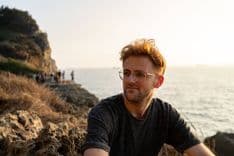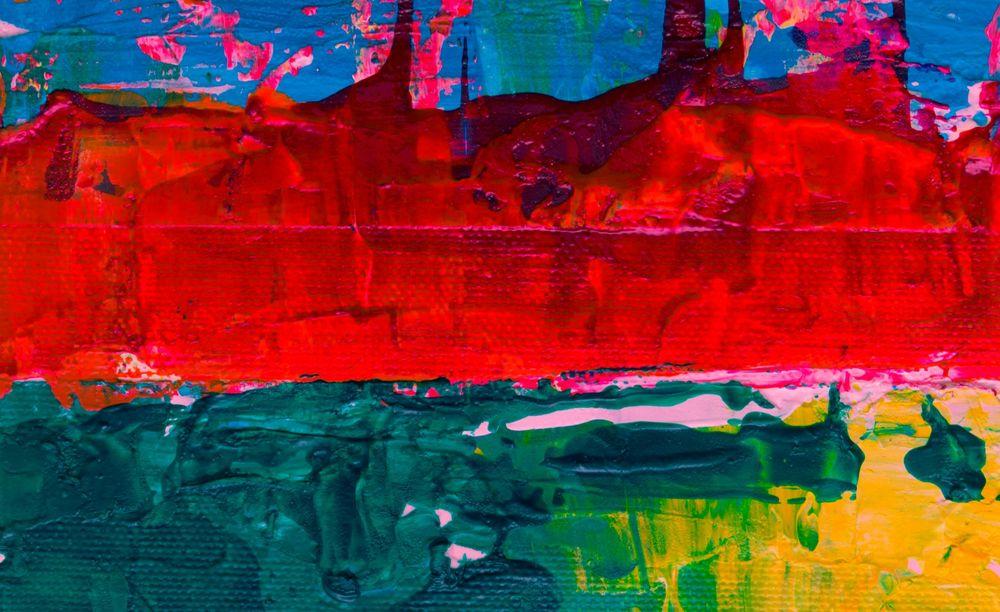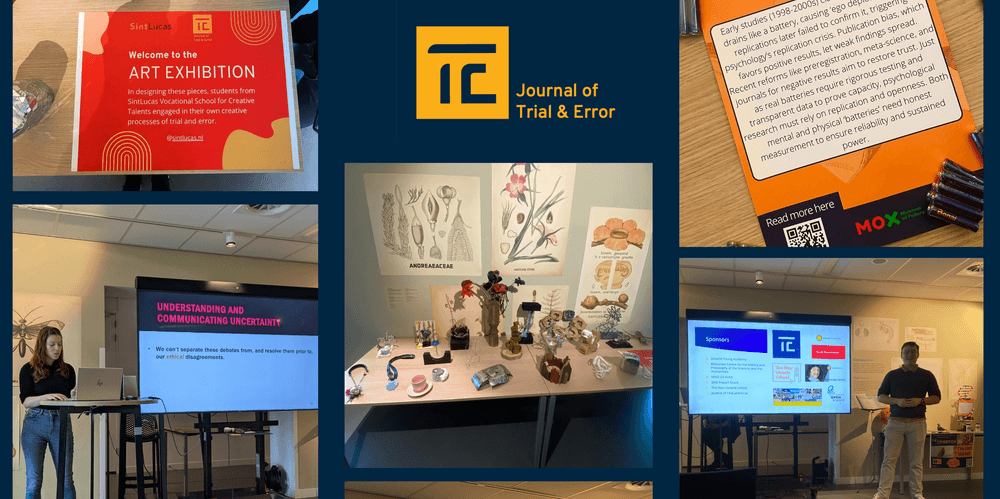~ 4 min read
Founding JOTE: A Conversation with Martijn van der Meer. “My Interests Became More Political. I Wanted to Contribute to a Mission-Driven Model of Scientific Publishing”
When establishing JOTE, its founders already had different views on the values and direction of the Journal. In this second part of the series on JOTE’s founders, we speak with Martijn van der Meer, long-time chair of JOTE and the driving force of JOTE’s organisation and foundation. He put down his position as chair and project leader in 2024, and is currently conducting research on the history of preventive child health intervention as a PhD candidate.
How did you get involved with JOTE?
"My motivations sprang from existential insecurities. As an aspiring historian of science, I wanted to know how I could contribute to contemporary struggles scientists were having at the time. Therefore I went to an “Open Science” event at the Utrecht Medical Center. After the event, I figured out that Max and Stefan, fellow students from the History and Philosophy of Science research masters were present as well. We started talking about how great it would be to share “failed research”, as this could potentially solve the publication bias and resulting reproducibility crisis.
"We also liked the idea because it could potentially solve the unrealistic self-image of scientists as chasing clouds and landing on ground breaking discoveries. Especially when Max shared the experiences from his master thesis in neuroscience, I personally became convinced that it was an idea worth exploring practically. We decided to think about it and had a meeting in Café Tilt to discuss the idea further. Over drinks, we decided to at least pretend that we founded the “journal of failed experiments” – later we changed the name to a more constructive one."
Can you elaborate on your personal motivations, ideas and ideals when establishing it?
"My motives shifted over the years. Initially, I was attracted to the idea of correcting the self-image scientific researchers seem to have, and securing a space for constructive reflection on the trial-and-error processes that are central to scientific work. Later, I liked the idea of an interdisciplinary dialogue that we were facilitating among empirical researchers and reflective scholars. Taking research with unintended outcomes as a point of departure seemed a great way of stimulating constructive interaction between History, Sociology, and Philosophy of Science, and those who actually do scientific research.
In the final years of my involvement, my interests became more political. I wanted to practically contribute to a mission-driven model of scientific publishing. We explicitly decided to not collaborate with profit-driven publishers – despite tempting offers – and instead tried to maintain a Diamond Open Access journal that could be practically and financially self-sustaining. For me, while steering our activities in the background, the last years have been to come up with a non-profit business model for facilitating scholarly communication. Moreover, I started to perceive the act of communicating about “failure” in a medium that conventionally focused on “success” to be a fantastic example of ironic anarchism. To me, the Journal of Trial and Error resembles an administrative logic alternative to growth-oriented modes of production."
How did your ideas differ from the other founders?
"I would describe my organisational approach as pragmatic in the sense that I have been focused on the consequence of our activities, and less on the intentions behind our efforts or how these intentions were perceived. I know that Stefan, from the progressive right, believes that profit-oriented modes of organisation can be very productive. Max, on the other hand, was motivated by radically revising profit-driven science. I most certainly agreed often with Max, but I did care less about whether anyone agreed with me. My personal values, in the end, have been less important than the efficacy of our efforts. Maximising the opportunities of how JOTE was misunderstood, in my view at least, has been perfectly legitimate from a pragmatic point of view."
What was the most productive or most notable failure in the establishment of JOTE (and what did you learn from it?)
"We should have been less eager to bring in as many people as possible without having clear operational tasks in mind. I have done a terrible job at getting individuals engaged at times I had other priorities (my studies, my actual job, etc.)."
What do you hope for the future of JOTE?
"I hope that it stays non-profit, and that the activities do not scale too fast – both in terms of people, money, and number of publications."

Marcel Hobma is a student in History and Philosophy of Science, and trained as an (investigative) journalist. His interests vary from the Philosophy of Biology to the incentive structure of science. He currently works on his Master's thesis on the cultural evolution of values in nutrition science.




